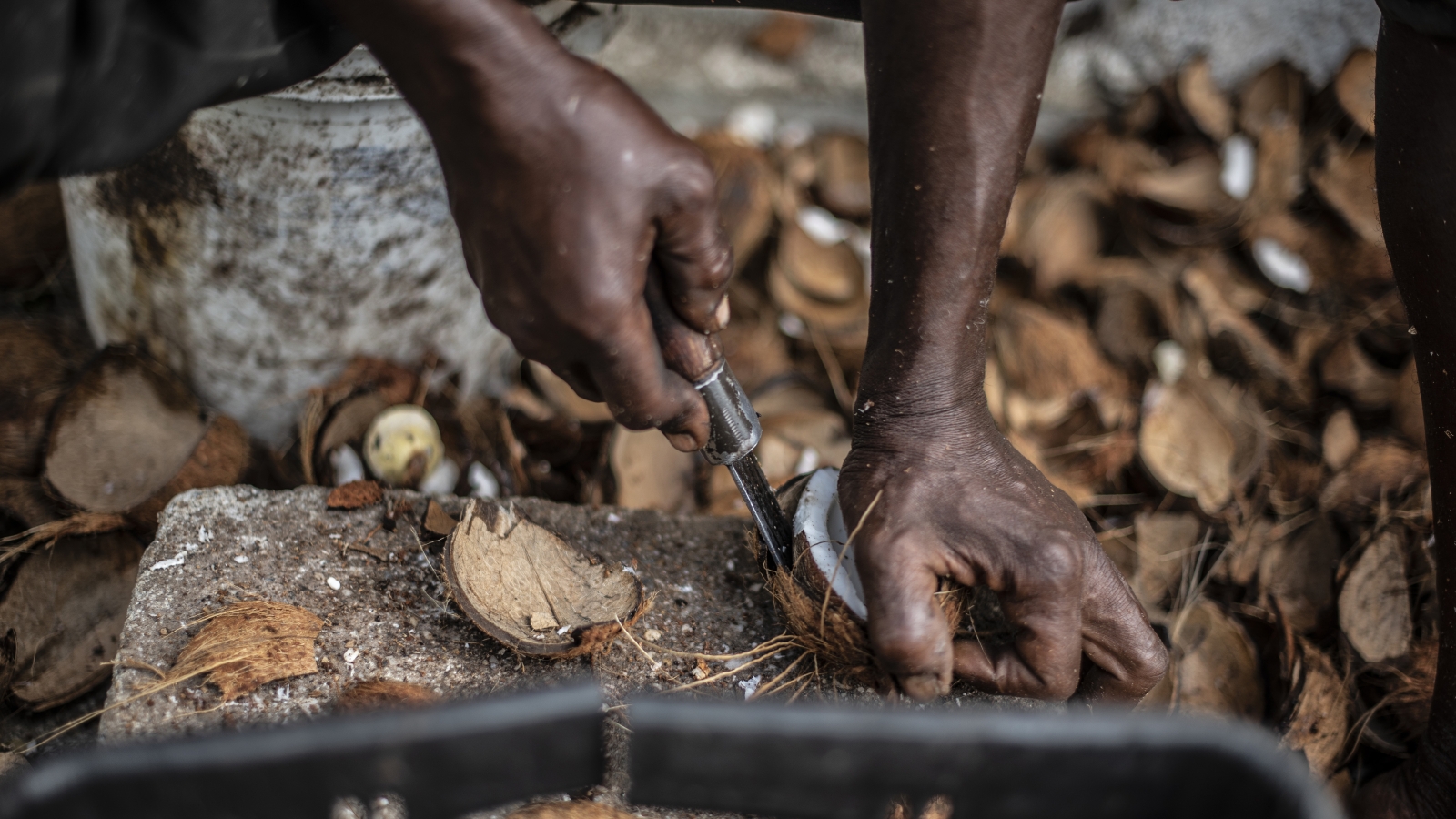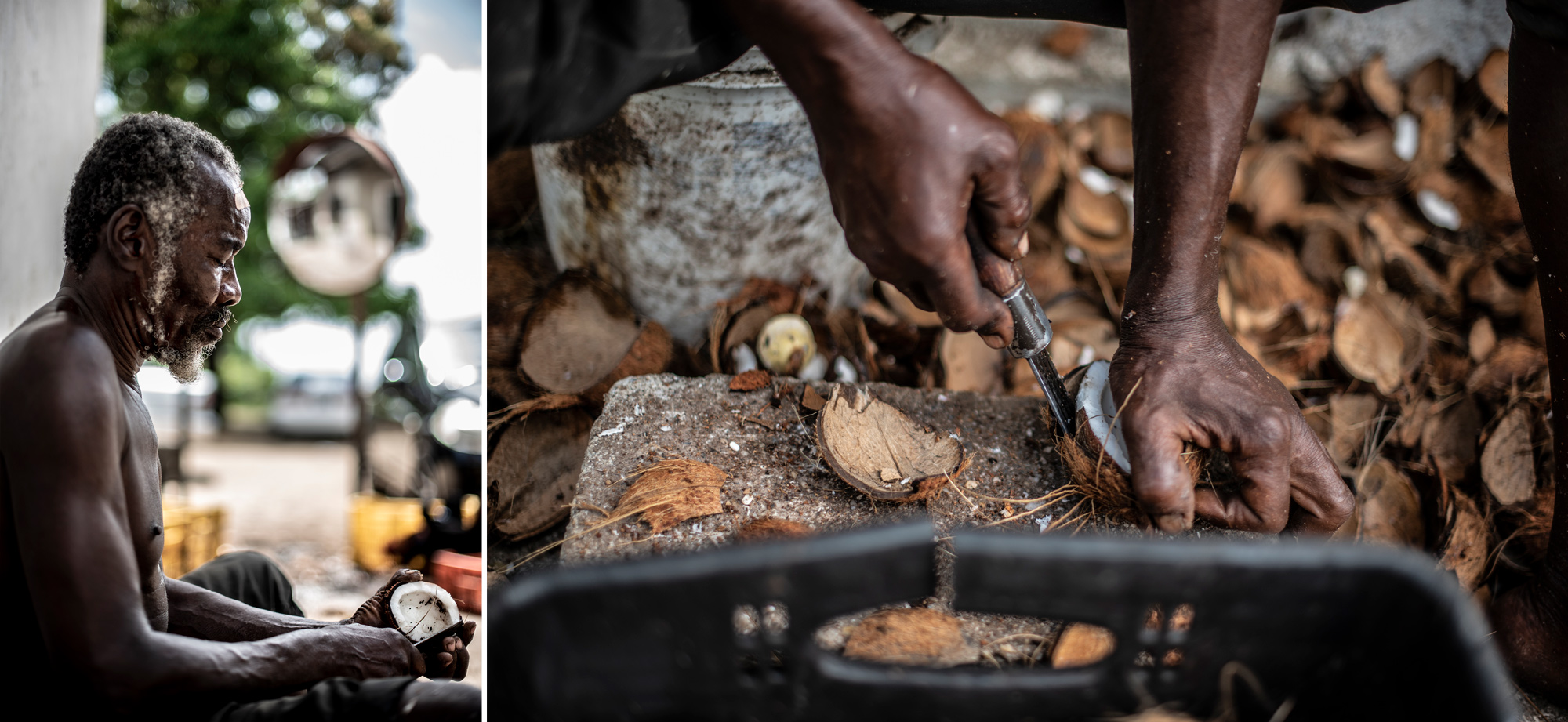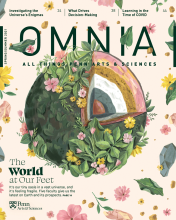Something Missing, Found
Leniqueca Welcome, a doctoral candidate in cultural anthropology, uses photography to explore the human experience.

Leniqueca Welcome had the perfect setting picked out for her photography class’s fieldwork trip: a beach on the southwestern-most tip of Trinidad. “It was my students’ first time to that part of the island and I remembered the beach being really beautiful. But when we got there it just looked barren and kind of sad,” says Welcome, a doctoral candidate in cultural anthropology who is also pursuing certificates in urban studies and experimental ethnography. “I thought the trip was going to be a bust but then the students started playing around and posing on the beach and asking me to take pictures of them. It was just the most beautiful scene and probably my favorite moment of research for my dissertation. These pictures just mean so much to me.” Thus, the series, “Bodies of Water,” pictured in part here, came together in 2019. Also included are selections from the series “Coconut Oil,” photographed in Icacos, Trinidad in 2018, and photographs examining sea lots—communities on the edge of Trinidad’s capital city, Port of Spain—in 2019.

Leniqueca Welcome, doctoral candidate in cultural anthropology
Welcome’s path to photography was winding. She previously worked as a designer in an architecture firm in Trinidad and Tobago before deciding to pursue anthropology. “Once I started the degree and switched from being a full-time designer to writing and reading, I really felt like a part of me was missing. I heard from a colleague that you could take photography classes for Ph.D. credit, and when I did, I fell in love,” says Welcome, who is now a member of the Collective for Advancing Multimodal Research Arts (CAMRA) at Penn. For Welcome, whose research explores criminalization, policing, politics, race, gender, and visuality, photography opened up another way of “seeing and retelling.”
Welcome’s exploration of the craft also led her to collaging, which she says allows for layering and opacity which the regular photograph does not. She is currently building a series of collages called “-scape,” and completing her dissertation, entitled “Where Life is Precious: The Terrains of Criminalization, Violence, and Freedom in Trinidad,” which interrogates the formulation of the figure of the “violent criminal” in Trinidad.







